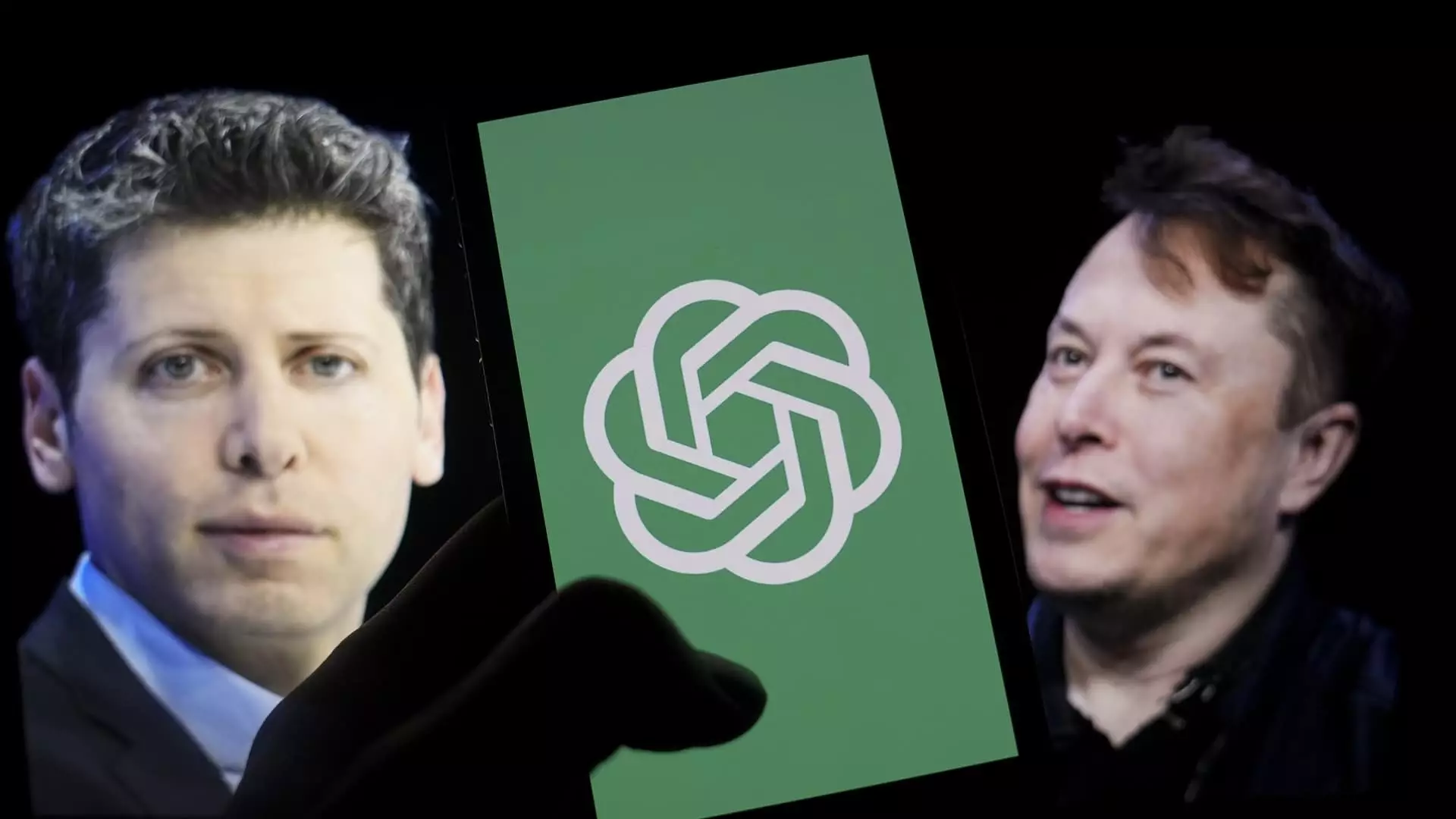Elon Musk, the billionaire entrepreneur known for his ambitious ventures, is entangled in a significant legal clash with OpenAI, the artificial intelligence enterprise he co-founded in 2015. Musk’s team, which includes his AI startup xAI and former OpenAI board member Shivon Zilis, has recently sought a federal court injunction aimed at halting OpenAI’s transition into a fully for-profit entity. This legal move is one among a series of escalatory tactics Musk has employed to challenge OpenAI’s trajectory, which he perceives as not only competitive but also potentially detrimental to the broader AI landscape.
The initial lawsuit, filed by Musk in March 2024, marked the beginning of an ongoing confrontation. After the initial complaint was withdrawn, a re-filing in federal court introduced new allegations, including claims of violations under the federal Racketeer Influenced and Corrupt Organizations (RICO) Act. These accusations highlight Musk’s concerns about the practices within the AI industry, particularly pointing fingers at OpenAI’s partnership with Microsoft and the implications such affiliations could have on competition and investment in AI.
Musk’s legal representatives argue that OpenAI has engaged in anti-competitive practices by allegedly coercing its investors into refraining from financing rival companies, including Musk’s xAI. The motion for preliminary injunction asserts that OpenAI’s actions resemble a “group boycott,” essentially restricting access to crucial investment capital for competitors. By limiting the financial avenues for aspiring AI startups, Musk’s attorneys claim that OpenAI is not just stifling his ventures but also undermining innovation in the sector at large.
OpenAI’s emergence as a dominant player in the AI field can be attributed to its successes, particularly with products such as ChatGPT, which have generated immense corporate enthusiasm and investment. Yet, this rapid ascent hasn’t come without criticism. Musk’s legal team explicitly argues that OpenAI is benefiting from what they term “wrongfully obtained competitively sensitive information,” suggesting a darker side to the collaboration between OpenAI and Microsoft.
In response to Musk’s allegations, OpenAI has dismissed the claims as “utterly without merit,” asserting that Musk’s legal strategies are both repetitive and unfounded. The organization positions itself as a pioneer in the AI arena, advocating for ethical AI development while drawing significant investment from major tech corporations including Microsoft, which has poured nearly $14 billion into OpenAI’s operations.
OpenAI’s ongoing transformation—from a non-profit founded on altruistic principles to a capped-profit entity and now potentially a fully for-profit corporation—reflects the complexities and financial demands of the rapidly evolving tech landscape. Although this shift may afford them competitive advantages and investor appeal, it raises questions about the integrity of their foundational mission and the ethical implications of prioritizing profit over the broader benefits of artificial intelligence.
The Regulatory Landscape
Complications compound with the growing scrutiny from regulatory bodies. The Federal Trade Commission (FTC) has indicated its intent to monitor the relationships between AI developers and cloud service providers, emphasizing the need for transparency and fair competition within the industry. Amid concerns about monopolistic practices in the burgeoning AI market, the implications of Musk’s allegations may resonate well beyond his immediate disputes, potentially triggering a broader regulatory examination.
The FTC’s inquiry reflects ongoing tensions within the tech industry as concerns grow over the concentration of power and access to capital. With generative AI poised to explode into a $1 trillion market by the end of the decade, the stakes could not be higher.
The Future of AI and the Competitive Landscape
As Musk’s xAI seeks to carve out its niche amid increasing competition—from both startups and entrenched tech giants—the legal skirmishes and allegations of unfair practices highlight the frenetic nature of the AI sector. With a surge in business expenditures on generative AI, having risen 500% in one year alone, the race for innovation, capital, and market share has intensified. Musk’s legal strategies seem designed not only to protect his investments but also to challenge the very structures that govern competition in AI.
At this juncture, the future of AI development hangs in balance. Musk’s public battle against OpenAI illustrates a crucial moment in the ongoing discourse surrounding ethics, competition, and innovation in technology. As players like Musk and OpenAI navigate the complexities of their relations, it’s clear that the outcomes of these battles will significantly influence the trajectory of the AI landscape, setting precedents that could either foster healthy competition or entrench existing monopolies. The coming months will be vital in determining how this narrative unfolds and what it means for the future of artificial intelligence.

